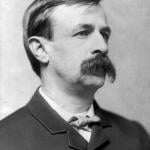There is a Creation. And there is also a New Creation. God created the universe in 6 days and on the 7th, He rested. His other stupendous work was when the Second Person of the Trinity became incarnate and took the evils and sufferings of His creation into Himself, dying to atone for them, and rising again. His resurrection took place on the day after the Sabbath, an 8th day.
The early Church made much of this symbolism. Sunday was considered not the first day of the week but the 8th day. Baptismal fonts were octagonal. Now that Christ has risen from the dead, we live in the age of the New Creation, the 8th day. After the jump, an excerpt from an essay by Dale Coulter on the Christian vs. the secular view of progress, drawing on the 8th day.
From Dale M. Coulter, The Eighth Day | First Thoughts | First Things:
In the words of the Epistle of Barnabas, God declares that “after I have set everything at rest, I will create the beginning of an eighth day, which is the beginning of another world.” As a result, the author explains, “This is why we spend the eighth day in celebration, the day on which Jesus both arose from the dead and, after appearing again, ascended into heaven” (15.8-9).
For the Patristic witness, the eighth day signals a day that is beyond the seven-day cycle of weeks and thus stands outside of the normal movement of time. It is the dawn of a new age in which time comes to be fulfilled in a kind of eternal stable movement around God. This kind of talk about the eighth day underscores the in-breaking of the divine into the movement of history to bring it to a final consummation. Or, maybe better put, the final surge of time and matter up into an “age” that approximates God’s own eternal life.
The resurrection of Christ is the first ascent into the stability of the eighth day when absolute rest and motion come together like a humming bird perched over a flower whose rapid rhythms give rise to stillness. On that day the interior motions of the soul and the motions of the body will course as one fluid movement when virtue begets beauty and beauty reveals virtue.












